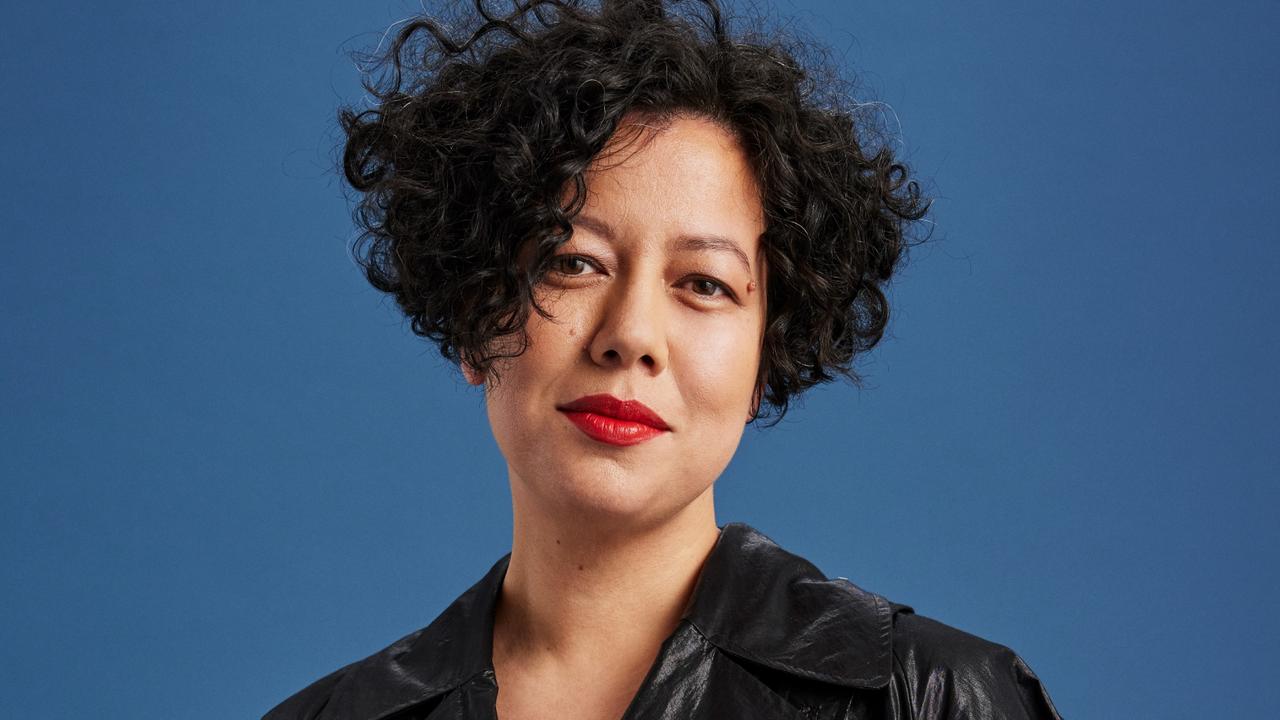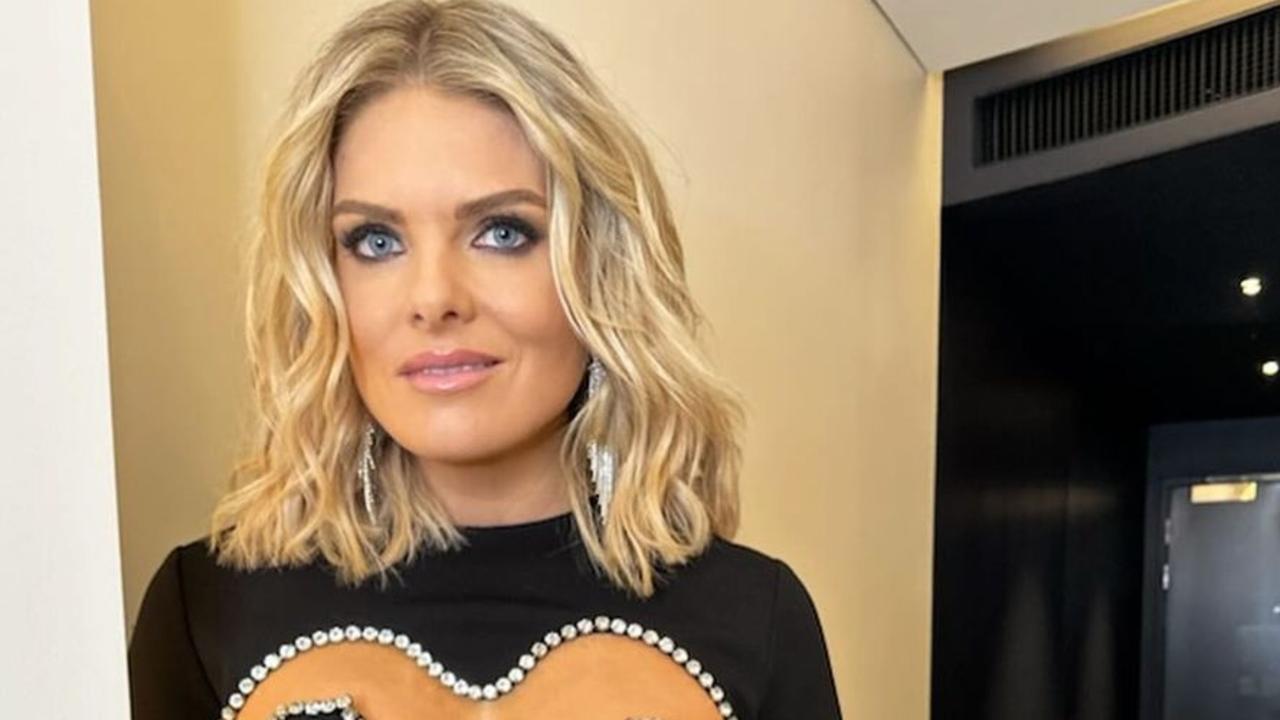‘What the f***’: Rebel Wilson reveals sexist treatment by Aussie TV show exclusive extract from new memoir
In an exclusive extract from her explosive new memoir, Rebel Wilson reveals her body image battle and the real reason she shunned romantic relationships in Hollywood.
Stellar
Don't miss out on the headlines from Stellar. Followed categories will be added to My News.
In an exclusive extract from her new memoir, actor Rebel Wilson candidly reveals that while her rise on the Australian comedy scene in the 2000s was the result of grit, talent and her refusal to bow to the era’s toxic beauty standards, she remained the target of professional scorn from her male co-workers – and disapproval from her mother.
Years later, after earning global notice with the box-office hits Bridesmaids and Pitch Perfect, Wilson was celebrated as the “brave” face of plus-size celebrity.
But behind closed doors, she was battling loneliness, self-doubt and a dangerous relationship with food.
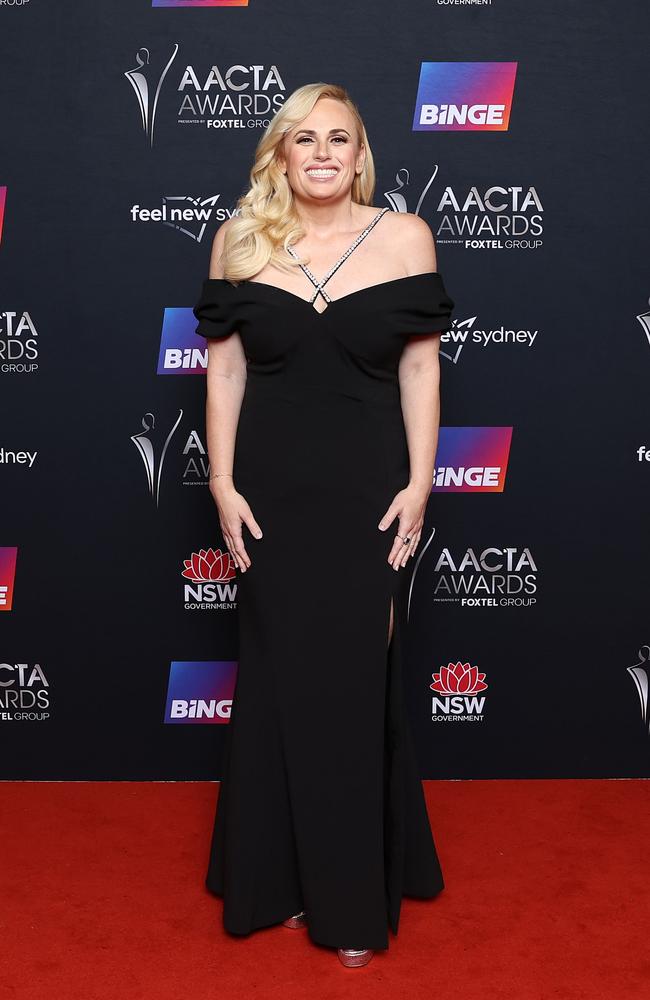
In 2002, Rebel Wilson was a law school student living at her family home in Sydney, sharing a bedroom with her sister, harbouring dreams of being an actor.
She had been rejected four times – and would soon be rejected for a fifth – by Sydney’s National Institute of Dramatic Art (NIDA), and was spending “all my money on law books, acting classes and starting my own theatre production company”. Ultimately, she saved $2000 and used it to produce The Westie Monologues, a play that landed her a small role (“I had like two lines”) in writer/director Paul Fenech’s upcoming comedy film Fat Pizza after he spotted her at a performance.
My cameo in the film Fat Pizza was so memorable that I was asked to be in the TV show of the same name. I play Toula, the overweight girlfriend of Habib, a drug-dealing pizza delivery guy. I make myself as fat and sloppy as I can
I wear unflattering eye shadow colours and ill-fitting tracksuits. I eat donuts regularly to gain even more weight.
Mum refuses to allow Fat Pizza to play in the house. She doesn’t want to see it because I look gross and she disapproves of my swearing in it.
I flaunt my fat stomach on national TV, deliberately making myself look bad for comic effect. Mum doesn’t understand. She just sees her daughter looking unsightly. I see an opportunity to break out.
I was the first recurring female character on Fat Pizza who wasn’t a sexy blonde bimbo. Cue the many, many derogatory jokes about my size and appearance.
I knew the jokes weren’t directed at me personally – my role was to be the big fat whale that got laughs. And I was willingly playing into that. I was determined, though, to give my character some more depth.
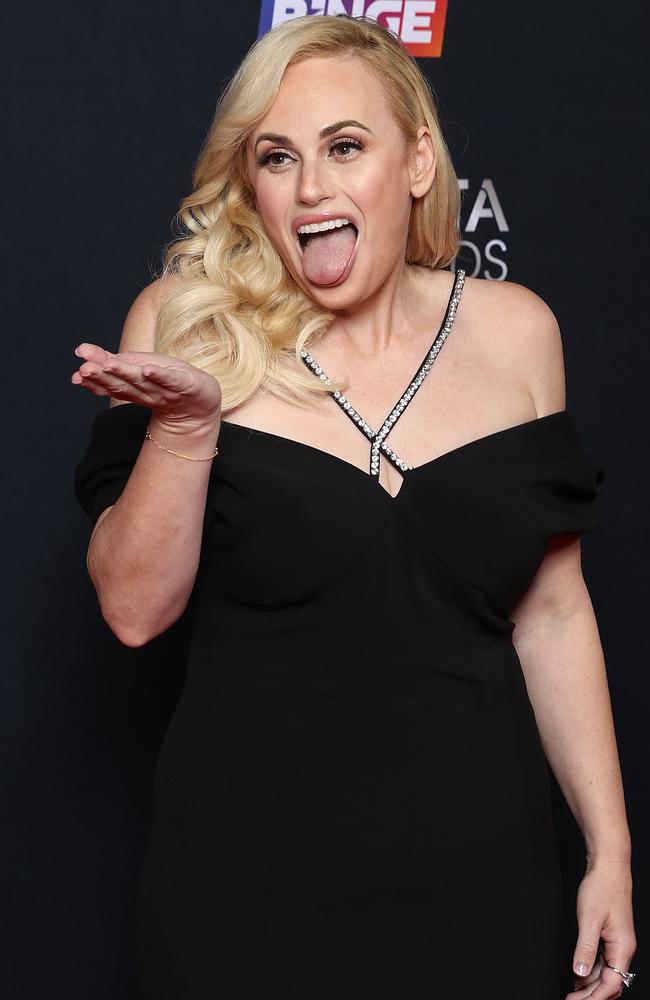
I also tried to hold my own among the guys, mainly improvising my own lines, hoping to get one joke on camera during a twelve-hour workday – because, trust me, no-one’s going to just hand you amazing jokes or material.
Not if you’re a woman in the early 2000s and starting from the bottom in television comedy. You have to push your way through the door and keep it ajar with your fat foot before they close it on you again.
I felt like the girl who had gained access to a special men’s club. It was very clear to me what they found funny, and I went with it. I was in a boys’ show, so I had to take their fatphobic jokes right on my double chin. All people cared about was that I was fat and funny. And I was doing both of those things very well.
Toula was becoming a bit of a sensation! The whale was developing quite a large fan base. I started writing a new one-woman stage show to capitalise on this fame. I was debuting it at the Melbourne International Comedy Festival and tickets were selling out. Pauly [series creator Paul Fenech] came up to me on set and said, “You try too much.”
Why was Pauly now criticising me? I’d been loyal to him for three seasons, showing up whenever he needed me on set.
The reason I was always doing more was because, as a woman, I needed to come up with ten times more jokes than the boys in the hopes that I’d get some screen time. I needed to try harder just to wedge myself into scenes where I didn’t naturally fit because all the boys were taking up the space. Pauly obviously didn’t understand that, but I will always be grateful to him for giving me my start in Australian television.
My next big job was on a weekly sketch show on Network Ten called The Wedge. The producers were looking for comedians who could write and perform their own material, and I’d caught a lot of people’s attention with my show at the Melbourne International Comedy Festival. When I was cast, I was the only lead female writer/performer. The rest were guys. We all pitched characters and scripts we wanted to film, and I came up with some good ones, including Lucy Webster, Fat Mandi, and Karla and Kiki Bangs.
I was becoming popular and some of the men working on the show didn’t exactly like the influence I was now wielding. To be honest, I think they were a bit shocked. I had two of the three highest-ranking characters on the show: Lucy and Fat Mandi.
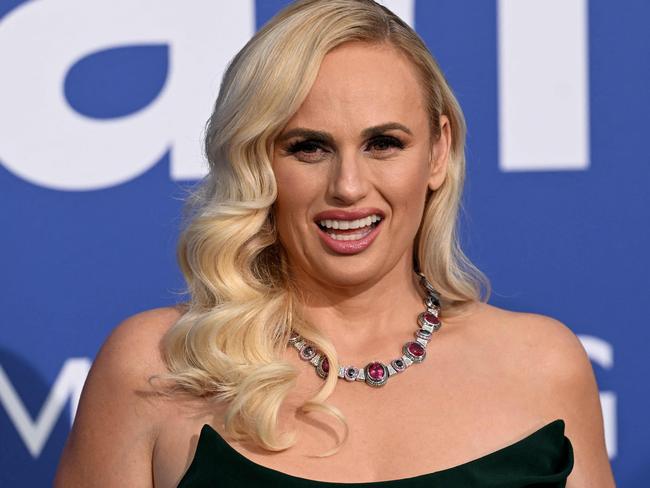
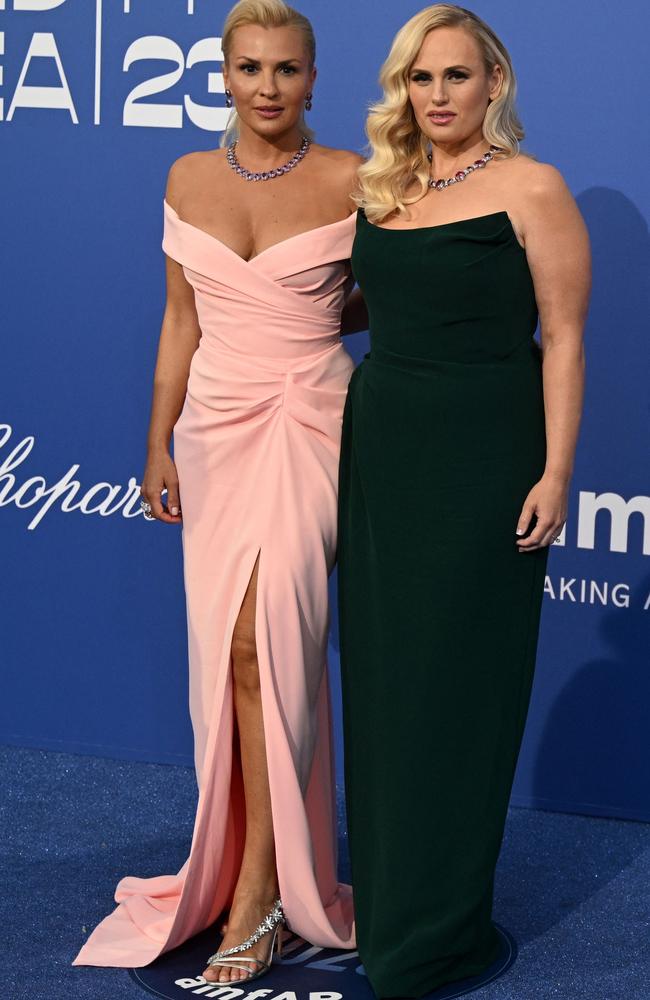
I’d hear gossip that some of these men thought I was “getting too big for my boots,” and they didn’t want this “to go to my head”. This made absolutely zero sense to me. Did I ask for more money for the second season of the show? Yes. But I felt I was worth it… plus I now had a mortgage to pay. But these guys seemingly HATED having to pay me more. I felt like they were trying to punish me.
Some of these men were also very open about the fact that the only way women could be funny was to be in bikinis or skimpy outfits. They weren’t fans of my funny, brash female characters. There was a running joke between us castmates that a bunch of them would gather to watch edits of the sketches we’d shot that week and whenever there was a hot girl in a skimpy outfit, they would say creepily in very low voices, “Yeah. That’s funny.” Those sketches started making it on air.
My sketches of characters that had ranked high in the first season were not even shot. It felt like my female-empowerment and body-positivity messages weren’t what they were looking for. I was starting to become known as “ballsy.”
Male writer/performers were able to speak up, but when I did it, it was seen as disrespectful.
For months, I would just sleep half the day in my designated office because no-one was scheduling my sketches to be shot. There was nothing for me to do. I’d write scripts and they’d get ignored or rejected.
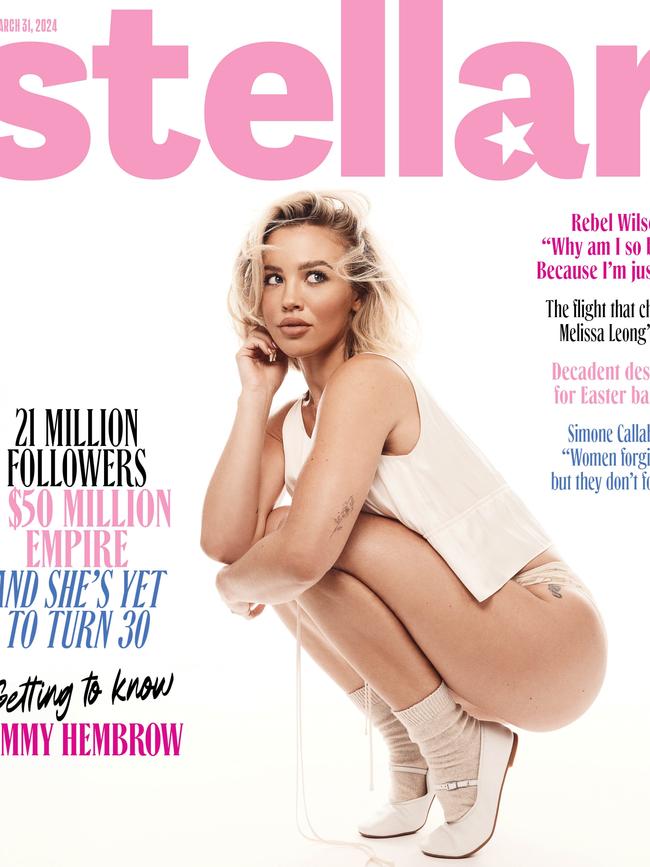
One day, I confronted one of my friends in the production team. It just got to a boiling point – I’d moved my whole life to Melbourne, I was being paid a great weekly salary and they weren’t even using me? What the f*ck? I blasted my friend in the office – which wasn’t exactly fair, but these men were… I don’t know, at an expensive boozy boys’ lunch across the street (which is why, I believe, some weeks in season 2 we had no budget for sets or costumes – I wondered whether they were blowing the budget on their lunches and/or up their noses).
“What the hell’s going on?” I yell at my friend. “This is ridiculous! Why aren’t any of my sketches being scheduled!”
I yell as I point to the production board of upcoming shooting days. I’m completely red in the face. I never, ever yell at people. To me this is level one hundred. I’m furious. My friend tries to say some bullsh*t like maybe my scripts weren’t “developed” enough. I can’t believe she’s siding with those dickheads. Later I’ll come to realise, maybe she has a mortgage as well.
But I’m so upset with her response that I’ll never really speak to her again. It’s too painful.
The Wedge was cancelled after its second season. We shot fifty-two episodes, which is
a lot for an Australian show, but in my view the quality of the show had diminished substantially. I left doubting myself, doubting my talents, doubting whether I would ever get a chance at doing my own comedy my way in a world where men called all the shots.
Less than a year later, in 2008, Wilson starred in Bogan Pride, a six-part TV series that secured her a meeting with agents in Los Angeles. She went on to complete a law school degree at the University of New South Wales before moving to LA; on her second day there, she was signed by William Morris Endeavor (WME). After 29 unsuccessful auditions – for projects including the Matt Damon film We Bought A Zoo – she landed a role in 2011’s Bridesmaids. The hit film effectively launched her international career; within two weeks of its release she booked six movies, including Pitch Perfect, a comedy about an all-female college a capella group, the Barden Bellas.
The writer of Pitch Perfect, Kay Cannon, had either seen footage of or heard about my improv skills on the Bridesmaids set, and reached out to me on Facebook.
“I’ve written a character called Fat Amy and I don’t want to offend you, but I think you’d be perfect for the role.” She was right. I was insanely perfect.
And I wasn’t offended by the character’s name at all (remember Fat Mandi!). When I read Kay’s excellent script about the world of collegiate a cappella I thought, “Fat Amy is my favourite character.” She wasn’t the lead, but she had spunk! She had potential. And I could embellish that!
I still had to audition, though. I went in to meet with director Jason Moore and producer Elizabeth Banks. I sang Lady Gaga’s ‘The Edge of Glory’ using my own body for percussion whilst singing – I do this cool little “slapping-my-chest clicking-clapping” thing to create a beat. I made them laugh. I could sing. I was fat. I booked the job instantly.
Because I was playing Fat Amy, I didn’t have to watch what I was eating at all. I gained weight by the end of the shoot and then some. On one of the last days, we did a poster shoot, and it was a bit odd to stand next to some of the smaller girls in the film. I think I weighed literally three times more than some of them.
You can’t NOT notice the difference in size as seven girls are lined up in a row being photographed whilst seventy people sit behind the photographer making comments about us. But I was so confident in my skills as a comedic actress that I was like, “Well, I know logically society wants actresses to be hot and skinny – because look how hard these girls are trying to remain that; they must be getting rewarded for participating in this ‘girl game’ – but I’m going to peace out and just represent for the big girls. I’m talented. I deserve my place in this line. I’m just going to shine.”
During my first few years in Hollywood, I recall getting a lot of comments like, “Oh wow, you’re so brave!” These were normally meant as “Oh wow, you in your size-twenty body strutting down a red carpet like you’re hot… That’s so brave!” or “Oh wow, you’re obese and you still get in front of a camera and smile – that’s so brave!”
I was always really put off by these comments, which 99 per cent of the time came from other women. Why am I so f*cking brave? Because I’m just ME?? Because I dare to exist as a plus-size woman in Hollywood? The way women would say this to me also usually had the sense of “I’m glad you’re the one out there doing this… I wouldn’t have the courage to do what you do.” The way they kept going on about being “brave” made me wonder – how many negative comments were these women getting about their bodies in their daily life?
I seemingly didn’t care about society’s pressure to be thin. But that pressure was SO GREAT in women’s minds that it was as if I was fighting a war against the patriarchal gaze.
Against the corporate spin that wants you to go on that weight-loss program and exercise and hate yourself enough to buy this product. I was Fat Amy leading a rebellion, like Fat Mandi against the fat camp in those sketches years earlier.
Sometimes in the entertainment industry your workload can be “feast or famine”. I was in feast mode. This meant that even though I was having the best time with my Bellas, in every spare second I had, I was thinking about what was next. When the shoot ended, I returned to my small apartment in Los Angeles, and it was like a depression took over. I’d had such a blast shooting the movie, made all these incredible new friends, and then it just disappeared, overnight. It sucks.
The loneliness is back big-time. I start yet another draft of my sitcom Super Fun Night. I order another family-size pizza, even though I know I shouldn’t. I discover these amazing ice cream sandwiches in a shop down the road.
I buy them almost every night. Except the nights when I’m “trying to be good” and don’t eat junk food… only to obsess about the junk food I’m not eating, pretty much sitting on my hands so that I don’t raid the fridge. It takes all my energy not to eat the sugar.
Especially now that I’m writing. I eat so much that I feel bad about myself. I promise to work harder and be better the next day.
“Ahhh, I’m Fat Amy now. I can eat this tub of ice cream,” the little devil inside me says. “They might need you for reshoots, you have to stay fat. You did sixty minutes on the treadmill plus weights today at the gym, you can eat dessert! You deserve it!”
“But I know that this behaviour isn’t exactly healthy. I feel gross. And maybe if I lost weight, someone might fancy me? I’d love for someone to love me.” “Everybody loves you, stupid! You’re Fat Amy now.”
“No! No-one is going to love me like this! No-one is asking me out on a date, are they?!”
This seeps into my core. I haven’t been on a date with anyone in sixteen years. “REBEL!!” I say to myself. “Shut up and enjoy the feast.”
Rebel Rising is to be published by HarperCollins.
Originally published as ‘What the f***’: Rebel Wilson reveals sexist treatment by Aussie TV show exclusive extract from new memoir

